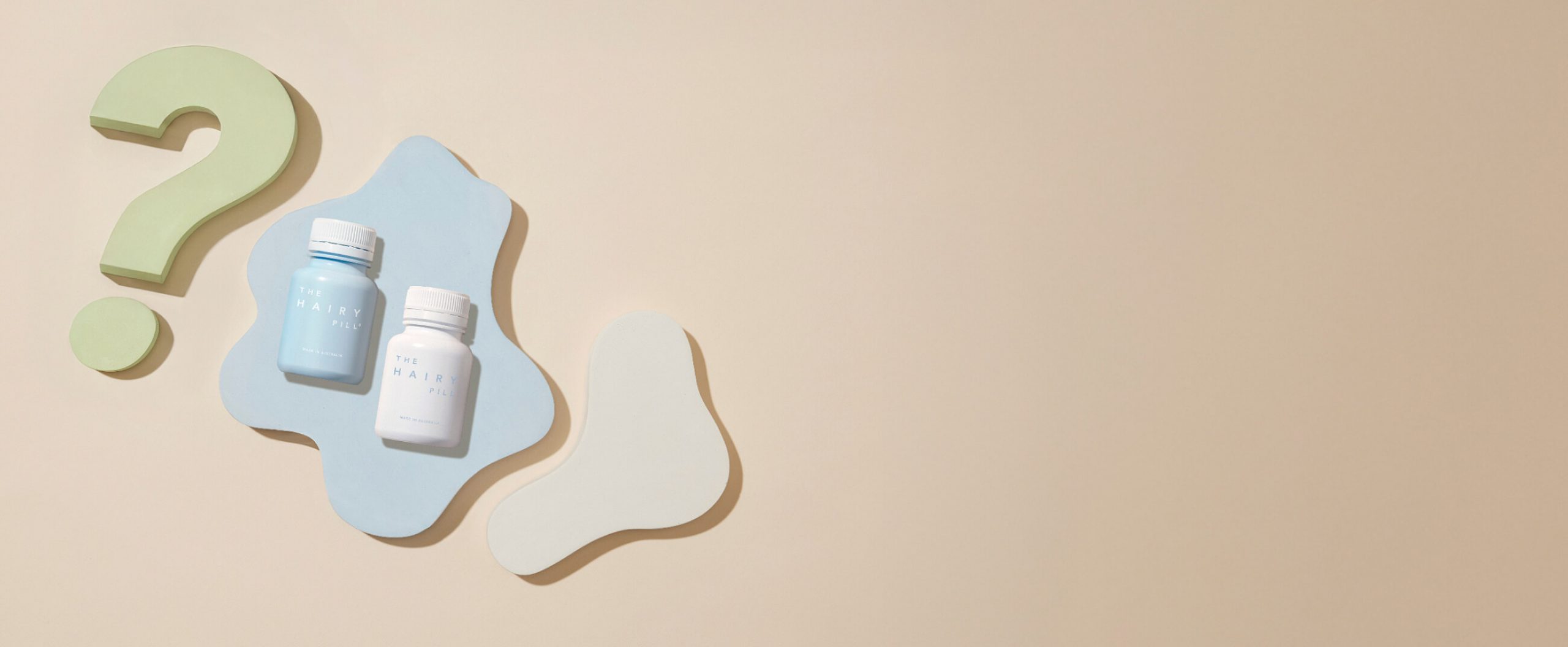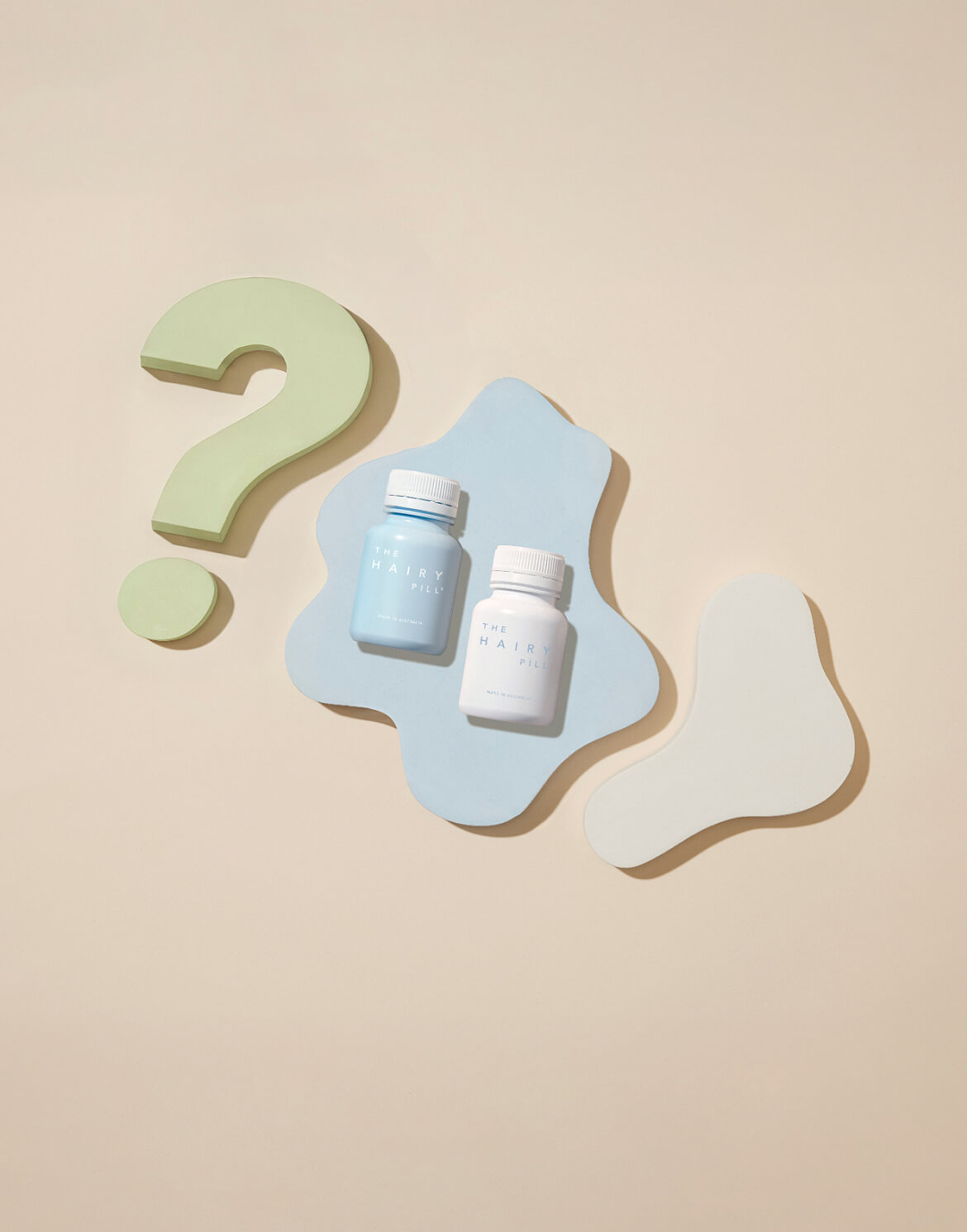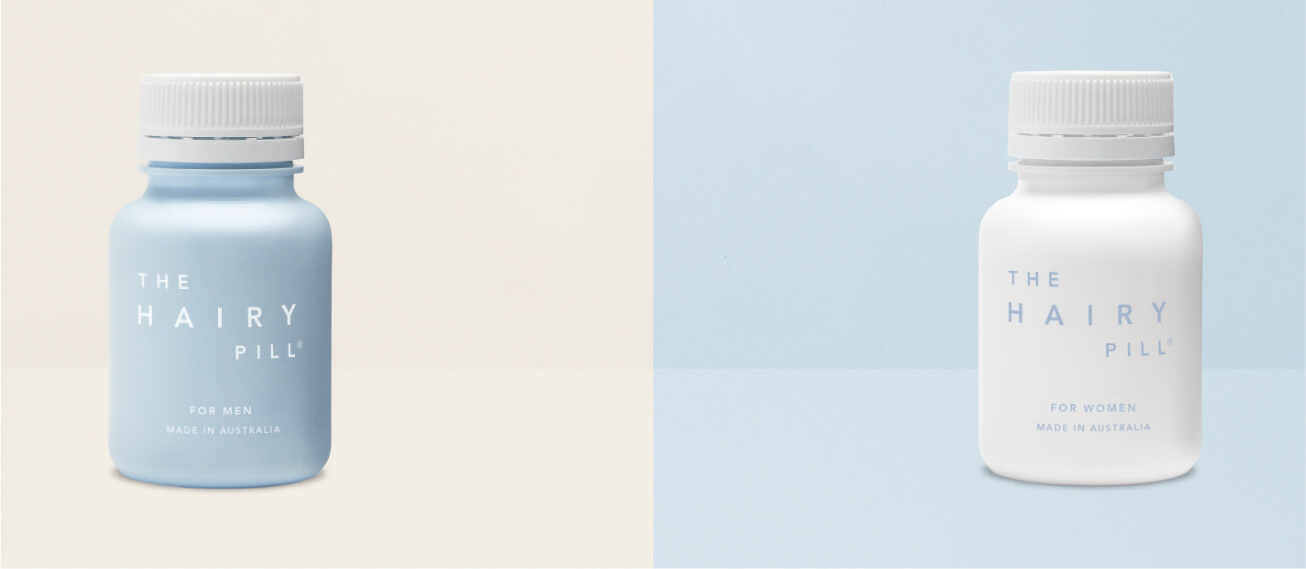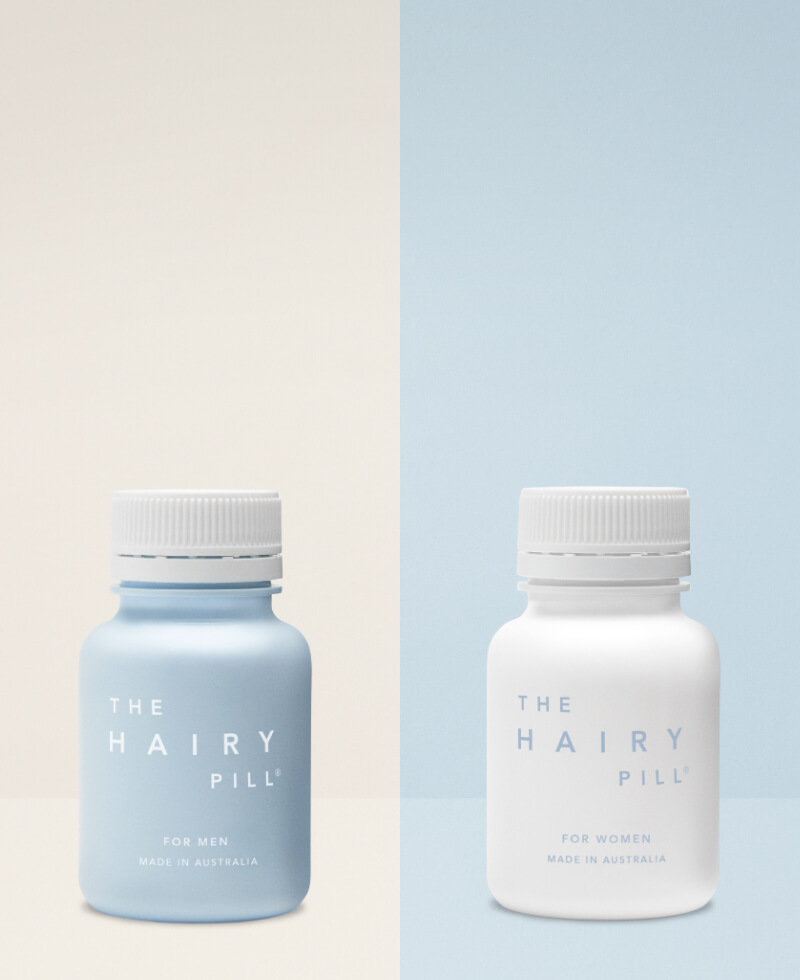Let’s face it, noticing your hair thinning can be a downer. It’s hardly a comfort to know that in males, it’s incredibly common for strands to become smaller and finer as you age.
Nearly 20% of Australian men in their 20s will experience it. Almost half of all men will by their 40s. It’s a hairy statistic.
But before you resign yourself to a bald future, take heart in knowing that your hair is thinning, not balding. That suggests you caught it early and have a good chance of reversing your hair loss and preventing further thinning.
Because there are ways to prevent thinning hair. Whether you’re noticing the early stages of hair loss or just want to be proactive, this guide will be your roadmap to keeping your hair looking its best.
Here are various lifestyle changes and hair loss treatments to prevent hair from thinning in males.
Find out how to stop thinning hair.
Discover if The Hairy Pill® is right for you.
Take our short hair health quiz and we will work out if The Hairy Pill® can help you and your hair.
Take the quizHow Men May Prevent Thinning Hair
Most thinning hair in males is inherited. But some men experience hair thinning caused by stress. Stress hair loss may get better on its own once the stress has passed.
But if your thinning hair is thanks to genetics, it won’t get thicker on its own. It will need a helping hand.
Find out why your hair is thinning.
As with many aspects of health, your hair situation is unique and you may get the best results using a combination of options below.
1. Don’t Put It Off
The first thing is to acknowledge that your hair really is thinning. Ignorance may be bliss but if you don’t want your hair to thin out any further, the earlier you do something about it, the better.
A hair loss doctor or dermatologist can assess your hair. Or you can complete a self-assessment using the Norwood Scale.
Tackling hair loss in the early stages gives you a good chance of both stopping hair loss and regrowing your hair. However, if you leave it too long, the hair loss may be permanent.
2. Keep Your Scalp Clean with a Hair-Thickening Shampoo
Yep, these thickening shampoos do exist, although there isn’t a lot of evidence that they’re the miracle cure you’ve been looking for.
Even so, if you’re tempted to give them a go, they’re relatively harmless.
Thickening shampoos and conditioners often contain exotic herbs you may be unfamiliar with. Luckily, we have a science-backed guide to the best herbs for hair loss.
On the other hand, some shampoos may contribute to frizz, a dry scalp, or weak hair. Many experts recommend using a mild, natural shampoo free from sulphates.
3. Eat a Nutrient-Rich Diet
Some nutrients play a vital role in hair growth. When your body doesn’t get enough of these nutrients, it can lead to weak, brittle, or thinning hair.
So it’s important to eat a balanced diet rich in nutrients like protein, iron, zinc, and essential fatty acids. Eating the best foods for healthy hair won’t hurt either.
If you do develop a vitamin deficiency, your doctor may recommend a supplement.
Most nutrients contribute in at least one way towards your general health. So correcting a deficiency isn’t just about giving you back a head of healthy hair — it’s about restoring the balance and ensuring overall good health too.
It’s always important to seek professional advice before self-prescribing. When it comes to hair growth supplements, a personalised treatment catering to your needs will always be better than off-the-shelf ‘hair health’ formulas from your local supermarket.
4. Try a Scalp Massage
Finally, a therapy you can truly get behind! Scalp massages — even self-administered ones — improve circulation and increase blood flow to the scalp.
They’re proven to be particularly effective if you have specific areas of thinning rather than overall hair loss.
Apply gentle pressure to your scalp with your fingertips while massaging in circular motions. This is enough to open up your blood vessels and stimulate circulation.
Some people like to apply an essential oil, such as rosemary, argan, or castor oil, to their scalp before massaging it in.
These oils may help moisturise your head but in most cases, there isn’t much evidence to back up claims that they promote hair growth.
We take a deeper look at the evidence behind some of these essential oils in our guide to herbs for treating hair loss.
A note of caution: If you do try an essential oil, always dilute it with a carrier oil and patch-test it with a small drop on your skin before applying it to your head.
5. Watch Those Stress Levels
Stress can rock your body, impacting everything from your heart rate to your immune system.
But for stress to cause hair loss, it usually has to be out of the ordinary. Everyday stress won’t typically affect your hair. Sudden and severe stress might.
Even so, it doesn’t hurt to minimise any daily stress — in any way that best suits you.
Consistent rest and getting enough sleep may help. We also recommend exercising regularly and staying hydrated. Mindfulness or meditation might also lower cortisol levels.
Another important part of reducing stress is avoiding or limiting your intake of cigarettes, drugs, and alcohol.
6. Stop Smoking
Smoking may contribute to hair loss. It’s known to restrict your blood vessels, which may impede the delivery of oxygen and important nutrients to your hair follicles.
So in the interests of your hair (and your general health!) we recommend ditching the pack-a-day pronto!
7. Try Hair Loss Medication
Compared to hair health supplements, hair loss medication contains active ingredients proven to treat hair loss.
The two most common medications in Australia are finasteride and minoxidil.
Finasteride is a prescription medication for men that helps stop testosterone from turning into dihydrotestosterone (DHT), the hormone that causes hair loss.
Minoxidil is an over-the-counter medication that helps increase blood flow to the scalp and may stimulate your hair follicles. It’s usually applied topically although there are also oral options.
It should only be used with doctor supervision to track side effects (including cardiovascular issues).
The Hairy Pill® can give you access to one of our partner doctors, who can recommend options to treat your thinning hair — using a therapy personalised to you — track your progress, and adjust your ingredients or dosage as needed.
No gimmicks. Just science.
It takes just 5 minutes to get started.
Ready to start your hair growth journey?
- Free express shipping
- Unlimited doctor consultations
- Simple once a day treatment













